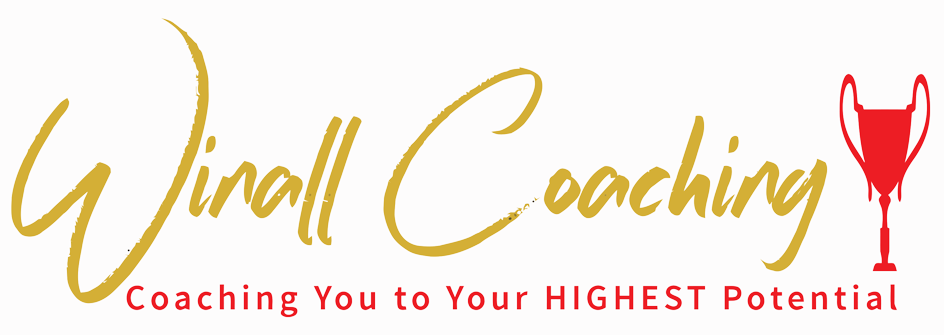“I’m Not Afraid.”
By Kelly Lyn Marquis, PHA, AKC RPH
When I first started on my journey into self-awareness (no longer living on auto pilot, but instead questioning and observing my behaviors with open curiosity), I didn’t have any fears that I knew of. I saw myself as strong, tough, and self-reliant. I proudly declared I didn’t need anyone. I felt good about that declaration. Strength, determination, self-reliance were all qualities I identified with, admired, and deemed “great” qualities. At that point in my life, my concept of fear was, “When I see it, I conquer it.”
I remember asking my mom one day a few years ago, “Mom, what are your afraid of?” She boldly declared, “I’m not afraid of anything.” I understood her. She was not lying to appear strong. No. In fact, my mom was telling the truth; the truth as she knew it. Yes, my mom is a strong woman. My mom does not run when she is confronted with something scary. I admire her for her strength and courage. I am grateful for all the ways she taught me to be strong. Because of my mom, I know whatever life throws at me, I can handle it.
If you are someone like my mom or me you too may be unaware that you even have fears. Many of us become so disconnected from our own fears that we are truly unaware we have them. Belief systems develop in our youth, and if left undetected remain with us throughout our lives, running our decision-making processes without us even knowing it. For much of my life my fears remained hidden from me, I had to go digging to find mine.
One may ask, why did I have to go digging for fear? One of our brain’s functions is to help keep us safe. Our brain is very skilled at keeping us safe from fear or harm. Our brain can become so skilled at keeping us away from our fear, that we are not even aware we are avoiding our fear, burying it, or “sweeping it under the rug,” so to speak. This happens quite naturally and develops over time.
Our brains are very efficient. Our brains develop pathways to help us be more efficient in our decision-making processes. This is similar to when we first go sledding. When you first attempt to sled down a hill with fresh snow it takes repeated effort to establish a path. Over time, and with repeated effort, we eventually have a deep path that we simply slide down. This is similar to how the brain creates pathways. These pathways are in place to help us make decisions quickly and efficiently. Although this is a highly efficient process, the snow trail you created when you were six may not be the best path for you now as an adult.
In my work as a life coach, I help my clients identify and dissect the pathways which helped them feel safe as children but which are no longer serving them as adults. When I begin working with new clients they are often confused as to why certain things are happening in their lives. They often feel like a victim to their life circumstances. They don’t realize the unintentional part they play in creating their current life experience. What served them in childhood is now keeping them stuck in a rut, wrestling with habits and behaviors that are sabotaging their success and happiness.
We tend to not think about why we do what we do, and instead do things automatically. This keeps us unaware of the underlining programming (beliefs) that is attracting the people and circumstances we are experiencing. The problem with being on automatic pilot and not practicing self-awareness is that our brains are efficiently helping us avoid experiencing our unconscious fears rather than facing them. What we are unwilling to face runs the show.
An example of avoiding underlying fear and being on autopilot is when we choose to not express ourselves, not have an opinion, hold back our feelings or fade into the background or as some would say, “be a fly on the wall.” We have difficulty expressing ourselves and sometimes find it easier to let others make decisions for us. This often easy to get along with personality becomes so comfortable with this way of being and moving through life that they are unaware of the possible unconscious forces driving this behavior. They don’t realize that fears such as fear of being seen, heard, wrong, or unworthy, maybe be underneath their awareness effecting their life choices.
An aspect of this dynamic played out throughout my life in that many strongly opinionated people surrounded me and I tended to let them make decisions. It was easier to go along with them. Keeping the peace was more important to me than taking a contrary stance. However, by not deciding, I was making a decision, a decision to allow others to make my life choices for me. The trouble with this is I would sometimes go along with what someone else wanted, and later feel resentful. My desire to keep the peace actually sabotaged my own inner peace, because what others wanted ultimately wasn’t right for me.
I’ve learned I would rather take action on something I believe in and be wrong, than to go along with someone else’s opinion I don’t agree with. When I allow myself to believe others know what is best for me, I end up having to deal with the consequences of having betrayed my own inner wisdom. I am now willing to take a stance and be wrong. If I am wrong, at least know I was true to myself, and will learn from my own mistakes… not someone else’s.
Another belief I had a strong attachment to was “I don’t need anyone.” When I told myself this, I felt powerful and invincible. Because of my strong attachment to this belief, I didn’t recognize my underlying fear of being dependent on someone and what that dependence might expose me to, such as being or feeling weak, vulnerable, and possibly discarded. I am learning to stop holding myself to impossible standards. It’s normal and quite human to occasionally feel weak, tired, and vulnerable. In fact allowing ourselves to be vulnerable is a key element in developing deep connections with others. My need to be strong and self-reliant at all times, often led to me to feeling disconnected because I isolated myself from others. In addition, I often felt drained, exhausted, and overworked because I didn’t feel comfortable asking for help. Since I have begun allowing myself to be vulnerable with safe people, I am discovering how deeply fulfilling relationships can be. When we are vulnerable, we open ourselves up. This opening creates space for us to accept more love from others thereby deepening our capacity for love.
Another belief that prevents us from seeing the fear beneath is, “I am highly competitive or I am very driven.” On the surface, this exudes strength, confidence, and fortitude. Although being competitive feels great and can lead to winning outcomes, sometimes it masks fears of feeling weak, insignificant, unlovable, or unworthy. This too has challenged me throughout my life. I have always been driven to be the best I can be. When I was younger I was often focused on proving to others I was good enough. I was not aware my childhood programming caused me to believe I had to be worthy in order to receive the love and attention I was seeking. If you are not worthy, you will not be loved. Not only was I trying to prove to others I was good enough, I was continually trying to prove to myself I was good enough. I did not know below the surface lurked a fear that if I was useless or insignificant, I would be discarded. It took a long time for me to understand it was not about proving my worth to other people it was about me learning to love myself, and accept myself as I am. I am worthy of love without having to “do” or prove anything. We are all worthy of love.
Now I can recognize when my own self judgement of not being good enough kicks in. When this happens, I remind myself to love myself and not compare myself to others to determine my own worth. Now that I understand this underlying fear of not being good enough I can enjoy my competitiveness from a much healthy place. Competition helps me focus my efforts. I can feed off my competitor’s energy and heighten my abilities. Being up against a great opponent who challenges me to be my best feels exhilarating. I truly love competition and the feelings it brings out in me.
The fears we uncover may be big or small. The goal is to take the energy that we’ve been spending burying our fears, recognize understand and heal the fear, so we may fuel our true passions and live our lives from a more empowered place. To uncover the fears or beliefs that may be sabotaging your happiness and preventing you from living the life you want, here is a simple exercise you can try.
Five Questions to Help You Excavate Your Hidden Fears
- What behaviors am I most proud of?
- How do these behaviors make me feel good?
- What would happen if I didn’t do these things?
- What would happen if I experienced the opposite of the behaviors I most desire?
- What might be the underlying fears driving these behaviors?
For me, “I am not afraid” has become “I am not afraid to face my fears.” Facing my hidden fears has been liberating. Rather than remaining in the dark, I am experiencing life with new insight as to what drives the decisions I make.

